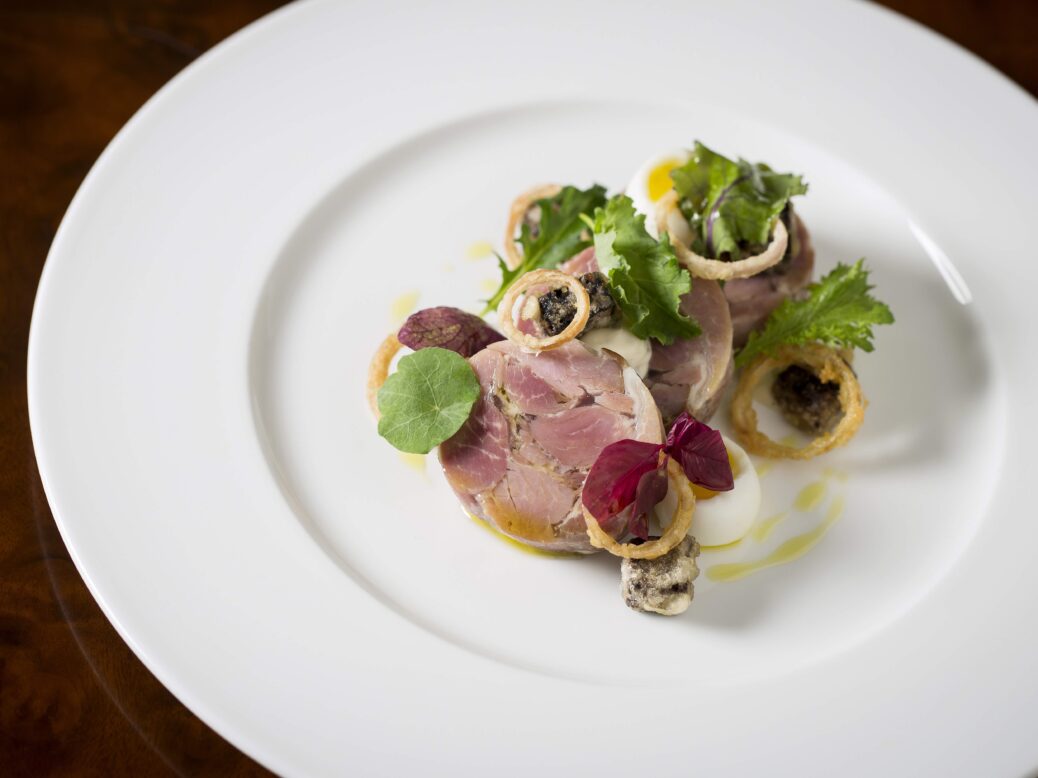
The Game Bird is an intriguing slice of a world that’s either dying or dead, but it has its undoubted pleasures, writes Christopher Jackson
One is never quite sure whether Mayfair is slowly dying or secretly immortal. Walk past the Ritz and on down past St James’s Place, and you will receive contrary impressions every five yards: the only thing that’s certain is that it does nothing quickly. Speed here is commensurate with scandal. On the one hand, the Georgian architecture is undeniably stoical: it doesn’t look like it intends on giving up without a fight. And yet it’s also dreamlike – a thing we might easily wake up from.
Such questions must not be allowed to languish unanswered. Turn down a cobbled street towards the Stafford Hotel, and weave through the lobby past the voices of happy-to-be-here Americans and you will find a piece of the old world – The Game Bird, the hotel’s venerable restaurant. The musty lounge seems the sort of place where you might meet someone with personal reminiscences of the Baldwin administration. As you sit down to your cocktail, the ghost of Lord Lyttleton drifts by on his way posthumously to a Regency tea party.

On the basis that an evening in late summer cannot conceivably be without cocktails, I ordered one. It was delicious, though it came with some desultory and slightly stale amuse-bouches which weren’t amusing in themselves, until we began to mock them. However, an amuse-bouche is to a restaurant’s overall output what light verse is to a poet’s: a demarcation of irrelevant limits. The late summer day was asking us to forgive them, and we obliged, moving through to the main restaurant.
This next space came complete with a portrait of Her Majesty probably painted before she had clapped eyes on the Duke of Edinburgh: one of those portraits where she looks too young to be able to hold a conversation with Churchill. There was also a display of red meat to tie in with the place’s name: one accepted the justice of this, while also feeling we were being asked to find a series of wanton killings evidence of genteel taste.
As we sat down, the newly installed manager emerged and, looking overtaken with a sudden appalling revelation, observed that it was unusually quiet for a Tuesday night. Following his dismay around the room, we could see that he hadn’t been deceived. An American couple whispered in library voices over their steaks. A 112-year-old French lady stared ahead like a hawk, furious at our youth. But food is what we were here for, and in time an art deco-ish menu was staring up at us, voluble with options.
I plumped for the Orkney sea scallops with burnt apple, radish and cider vinegar, and found myself in a time stream I had forgotten about while at Game Bird: the present. It occurred to me that among all these ghosts, and concealed in the Wodehousian look of the place, a living being might reside. This was a chef – one not at all off his game.

For main, my companion – too pregnant to eat the red meat which the place is named after – opted, after some eating-for-two agonising, for a Dover Sole. Three weeks later, she was still speaking about it in terms of mild approval. It hadn’t done her any harm, but I retain the impression that she had food envy for my Chicken Kiev. That dish, the Evening Standard has deservedly extolled. Three flakes of truffle nestled on a submarine of mash potato, and the chicken neighboured it. Once speared, the sauce rushed across the plate to the mash, as if it wished to confide something: the cunning of the dish was to make it about texture as much as flavour.
We finished with a treacle sponge, over which the dessert wine accelerated drastically. And after that, I was swept forwards on an accumulated tide of that and my previous glasses of Sauvignon Blanc and Brunello into one of the place’s chief selling points: its cellar. Interestingly, this used to connect to Buckingham Palace back in the day, as a useful way of transporting booze to the monarchy without alarming the people.
And that’s the pleasure of this place: it might perhaps take itself seriously, but it has its undoubted pedigree. Faulkner once wrote: ‘The past isn’t dead, it isn’t even past.’ Leaving Game Bird, I realised that Mayfair is like that: it has that most obscure gift – the knack of persisting.
Christopher Jackson is Head of the Spear’s Research Unit







